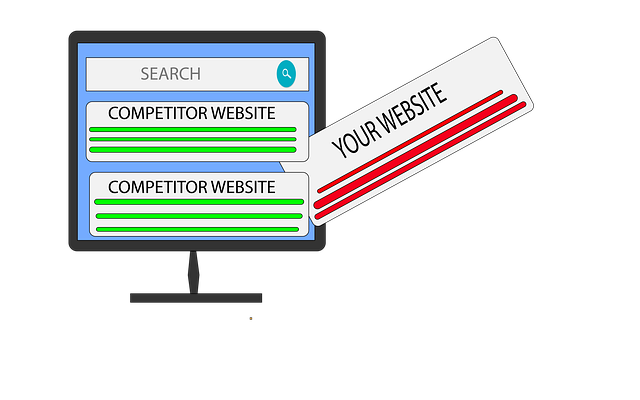AI chatbots for e-commerce are transforming online shopping with 24/7 support via natural language processing (NLP), offering personalized product recommendations, seamless interactions, and efficient engagement. Leveraging NLP, these bots understand user intent, provide context-aware assistance, and handle multiple conversations simultaneously during peak sales periods. Key advantages include enhanced customer experiences, increased satisfaction, loyalty, and sales through targeted personalization based on preferences, browsing behavior, and purchase histories. Integration with CRM and e-commerce platforms, along with scalability, ensures a cohesive user experience, access to customer data, and adaptability to business growth.
In today’s digital era, AI chatbots are transforming the ecommerce landscape. They serve as virtual assistants, enhancing customer service and driving sales. Understanding the role of these intelligent agents is crucial for businesses aiming to stay competitive. This article explores key features to look for in an AI chatbot for ecommerce, including natural language processing, context awareness, personalization, integration capabilities, and scalability. By the end, you’ll be equipped to navigate this game-changer technology effectively.
- Understanding the Role of AI Chatbots in Ecommerce
- Natural Language Processing: The Heart of Effective Communication
- Context Awareness: Maintaining Coherent Conversations
- Personalization: Creating a Unique Customer Experience
- Integration and Scalability: Seamless Fit with Existing Systems
Understanding the Role of AI Chatbots in Ecommerce

In today’s digital era, AI chatbots have emerged as game-changers in the realm of e-commerce, revolutionizing the way businesses interact with their customers. These intelligent virtual assistants play a pivotal role in enhancing customer experience and driving sales. By leveraging natural language processing (NLP), ai chatbots for ecommerce offer 24/7 support, instantly addressing customer queries, providing product recommendations, and even facilitating purchases.
They act as a bustling symphony of assistance, navigating the complex landscape of online shopping. From understanding customer preferences to offering personalized product suggestions, these chatbots create a seamless and enjoyable experience. Moreover, they can handle multiple conversations simultaneously, fostering efficient customer engagement and ensuring folks get the help they need promptly. This capability is especially valuable during peak sales periods when human agents might be stretched thin.
Natural Language Processing: The Heart of Effective Communication

Natural Language Processing (NLP) is a cornerstone of modern AI chatbots, enabling them to understand and interpret human language in a meaningful way. For an AI chatbot designed for ecommerce, NLP is essential for facilitating seamless communication between customers and the bot. It allows users to interact naturally, using everyday language, rather than being confined to pre-programmed queries. By leveraging NLP, the chatbot can accurately grasp user intent, whether it’s asking about product details, seeking recommendations, or initiating a purchase.
This technology powers features like context awareness, where the chatbot remembers previous interactions and uses that information to provide relevant responses. It also enables sentiment analysis, allowing the bot to detect user mood and tailor its responses accordingly. For an ecommerce chatbot, this means offering personalized assistance, addressing customer concerns, and enhancing overall shopping experiences—all while ensuring the conversation flows naturally and feels human-like, even in a digital setting.
Context Awareness: Maintaining Coherent Conversations

In the realm of AI chatbots for ecommerce, context awareness is a pivotal feature that enables seamless and coherent conversations with customers. These advanced bots can understand and remember previous exchanges, allowing them to provide relevant and personalized responses. For instance, if a customer inquires about product availability, the chatbot should be able to recall this information during subsequent chats, ensuring consistency and avoiding repetitive questions.
Context awareness ensures that the ecommerce ai chatbot maintains a continuous flow of conversation, much like a human assistant would. It helps in building trust with users, fostering better engagement, and ultimately driving sales by offering intuitive assistance tailored to each customer’s unique needs. This feature is especially valuable for handling complex queries or when customers return to complete a purchase after an initial inquiry.
Personalization: Creating a Unique Customer Experience

In the realm of ecommerce, an AI chatbot can significantly enhance the customer experience by offering personalized interactions tailored to individual preferences and purchase histories. Personalization is a key feature that sets apart a good chatbot from a great one. An advanced AI chatbot for ecommerce uses machine learning algorithms to gather and analyze data about each user’s browsing behavior, product interests, and past purchases. This allows it to deliver targeted recommendations, offer customized discounts, and provide relevant answers to queries, creating a unique and engaging shopping journey.
By personalizing the customer experience, an AI chatbot can increase customer satisfaction, build brand loyalty, and ultimately drive sales. It ensures that each user feels understood and appreciated, fostering a stronger connection between the customer and the ecommerce platform. This level of personalization was once unimaginable without extensive human intervention but is now achievable through cutting-edge AI technology.
Integration and Scalability: Seamless Fit with Existing Systems

When evaluating an AI chatbot for e-commerce, one critical aspect to consider is its integration and scalability capabilities. A robust chatbot should seamlessly fit into your existing systems and platforms, ensuring a smooth user experience across all touchpoints. This means it can connect with your customer relationship management (CRM), e-commerce platform, and other relevant tools without any friction.
Efficient integration allows the chatbot to access valuable data from these systems, enabling personalized interactions. For example, it could pull product details, inventory levels, or purchase history to provide tailored recommendations. As your business grows, a scalable chatbot can adapt, handling increased user volume and expanding functionalities without compromising performance. This ensures that your chatbot remains an effective tool, contributing to improved customer satisfaction and sales in the long run.
An AI chatbot for ecommerce is no longer a luxury but a necessity, offering businesses an efficient way to enhance customer engagement and sales. By implementing features like Natural Language Processing for effective communication, Context Awareness to maintain coherent conversations, Personalization to create unique experiences, and Integration with existing systems for seamless operation, chatbots can revolutionize the online shopping journey. These tools not only reduce costs by automating tasks but also provide valuable insights into customer behavior, ultimately driving business growth.
